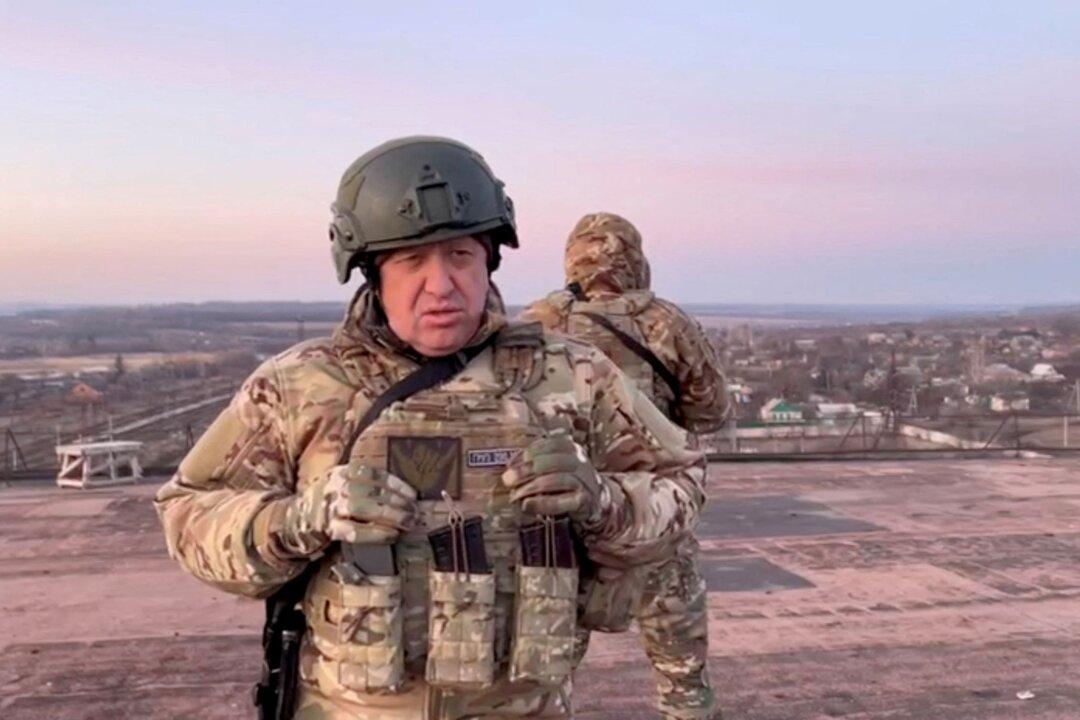Russian President Vladimir Putin has met with Wagner mercenary leader Yevgeny Prigozhin and his commanders to discuss the recently aborted uprising against the Kremlin, a Russian spokesman has confirmed.
Kremlin spokesman Dmitry Peskov said on July 10 that the face-to-face meeting took place in the Kremlin on June 29 and lasted roughly three hours. The meeting took place five days after the aborted revolt, which posed the most serious challenge to Mr. Putin since he came to power on Dec. 31, 1999.





